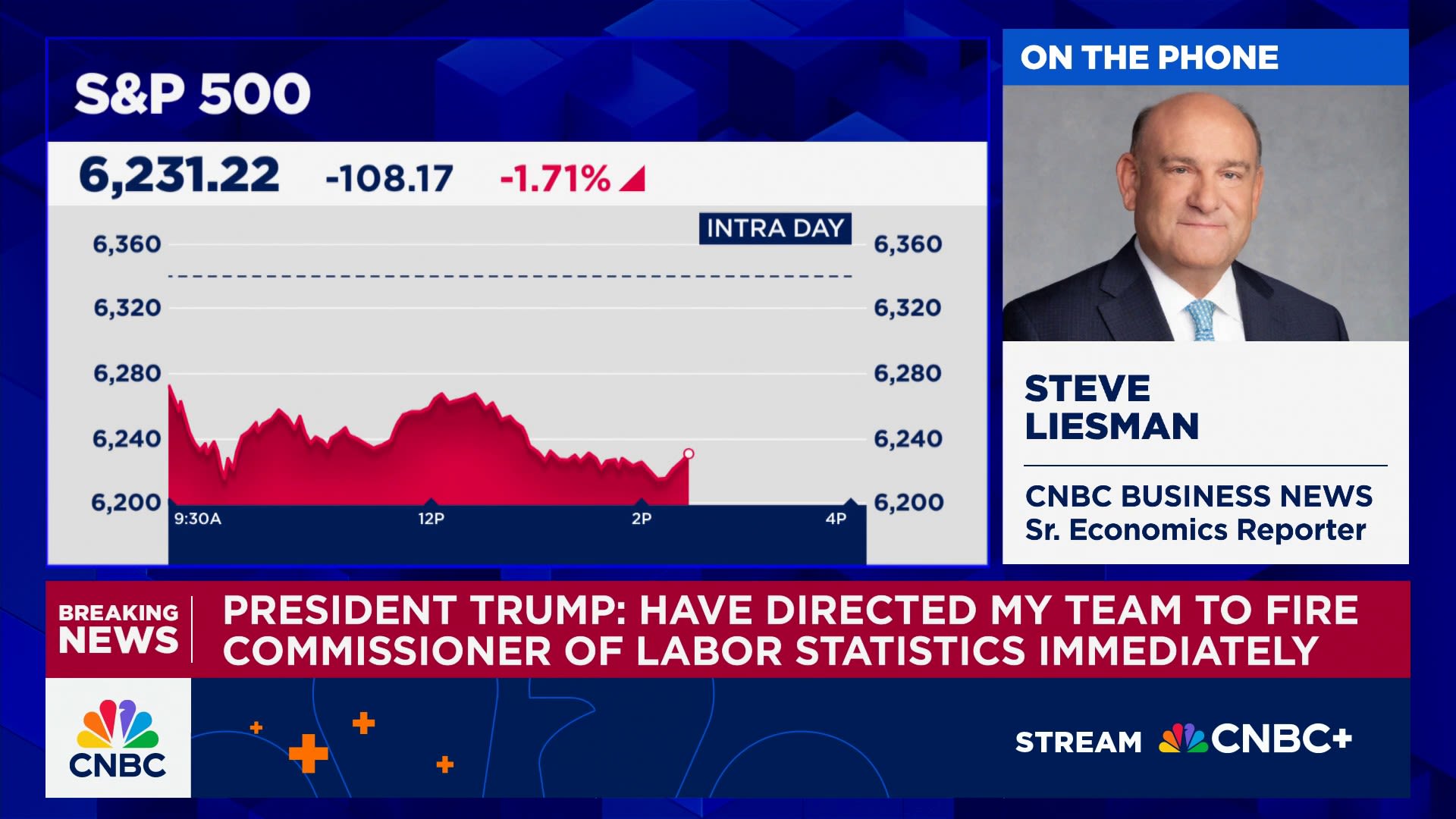The latest jobs report is in, and the numbers are giving political candidates in New Jersey a fresh battleground as the 2025 election season ramps up. With hiring slowing and the unemployment rate inching higher, both sides of the aisle are racing to control the narrative on how national policies—especially Donald Trump’s aggressive new tariffs—are impacting New Jersey’s economy.
In the midst of all this, local issues like the state’s lifeguard pension crisis are surfacing as a symbol of broader concerns: economic policies that seem increasingly detached from the day-to-day realities of New Jersey families.
The Numbers: A Sluggish Labor Market
The July jobs report, released by the Bureau of Labor Statistics, confirmed what many economists have been bracing for: hiring slowed in July with only 73,000 jobs added, a sharp drop from June’s 147,000. Unemployment ticked up to 4.2%, signaling a cooling labor market that’s now caught in the tug-of-war between stubborn inflation and rising borrowing costs.
While Wall Street had anticipated a modest slowdown, the immediate reaction was less forgiving. The Dow Jones Industrial Average plummeted over 500 points following the release. In New Jersey, a state heavily reliant on small businesses, trade, and middle-class households, these numbers weren’t just a line item—they’re a wake-up call.
If you want to track how these economic stories continue to develop, visit our dedicated New Jersey Politics section for ongoing updates.
Tariffs and Taxes: New Jersey Businesses Caught in the Crossfire
At the center of New Jersey’s economic angst is the impact of Donald Trump’s newly announced tariffs. Dubbed as a strategic move to bolster American industries, critics are calling them what they are: a tax hike on consumers and businesses. Estimates suggest these tariffs could cost the average American family an extra $2,400 per year, hitting New Jerseyans particularly hard in an already high-cost state.
Manufacturers, importers, and small business owners in New Jersey are bracing for ripple effects. Rising material costs and supply chain headaches are once again back on the table, threatening profit margins and job stability.
This has become a rallying point for Democratic gubernatorial candidate Mikie Sherrill, who wasted no time pointing the finger at her opponent, Jack Ciattarelli, accusing him of falling in line with Trump’s economic agenda. In a fiery statement, Sherrill called the tariffs “a tax hike, plain and simple,” blaming them for the state’s recent loss of 12,000 jobs in just two months.
Sherrill emphasized how New Jersey families are already struggling with housing costs, healthcare, and everyday living expenses, claiming that these tariffs will only deepen the financial burden.
Ciattarelli’s Counterpunch: “Short-Term Pain” or Long-Term Gain?
Ciattarelli, who has received Trump’s endorsement, is navigating a fine line. While he acknowledges the “short-term pain” caused by tariffs, he maintains that the long-term vision is about protecting American industries and jobs. But critics argue that this narrative does little to comfort New Jerseyans losing jobs or watching their grocery bills surge.
The big question is whether Ciattarelli, as a candidate—and potentially as governor—would be willing to challenge Trump on economic policies that disproportionately hurt New Jersey. So far, his statements have echoed the former president’s stance, but with the state’s economy under strain, political observers are watching closely to see if Ciattarelli adjusts his messaging.
Pension Crisis Adds Fuel to the Fire
As if economic headwinds weren’t enough, New Jersey’s lifeguard pension system has entered crisis mode. A recent report by the state comptroller highlighted perilous deficits in the fund, suggesting that a mandated pension program for seasonal lifeguards should be scrapped.
The proposal has ignited fierce debate. Proponents argue that scrapping the mandate would alleviate pressure on municipal budgets, while opponents say it undermines labor protections for vital public safety roles. It’s a hyperlocal issue, but emblematic of larger fiscal challenges New Jersey faces as it juggles pension obligations, infrastructure needs, and now the cascading effects of federal trade policies.
Innovation Still Finds a Way: WinTheView’s Job Seeker Platform
Amidst the economic turbulence, some companies are pushing forward with initiatives designed to uplift New Jersey’s workforce. WinTheView, a New Jersey-based career platform, recently announced a significant price improvement on its Career Portfolio tools, aiming to make high-quality job-seeking resources more accessible.
With the labor market cooling, tools like these could be crucial in helping displaced workers rebrand themselves and find new opportunities in an increasingly competitive job landscape. It’s a small, but important reminder that even in uncertain times, local innovation continues to create pathways for New Jerseyans looking to stay ahead.
The Political Chessboard: A Narrative War Heating Up
With the 2025 gubernatorial race now fully ignited, the battle over jobs, tariffs, and economic policy is turning into a war of narratives. Mikie Sherrill is framing Ciattarelli as an extension of Trump’s economic agenda, while Ciattarelli is banking on the belief that New Jersey voters see tariffs as a necessary evil for long-term national strength.
But politics aside, what remains clear is that New Jersey’s economy is at an inflection point. From labor market shifts to pension fund crises and the volatile impact of trade wars, voters will be forced to weigh these realities carefully as they head to the polls.
For continued coverage on New Jersey politics, economic trends, and how it all impacts you, visit Explore New Jersey Politics.












